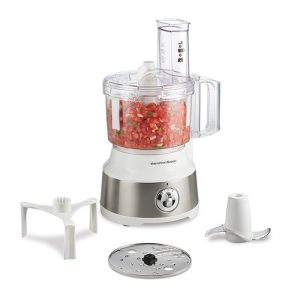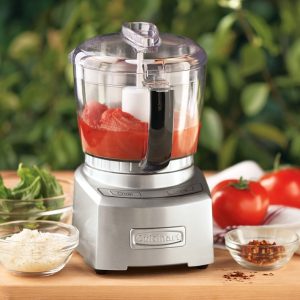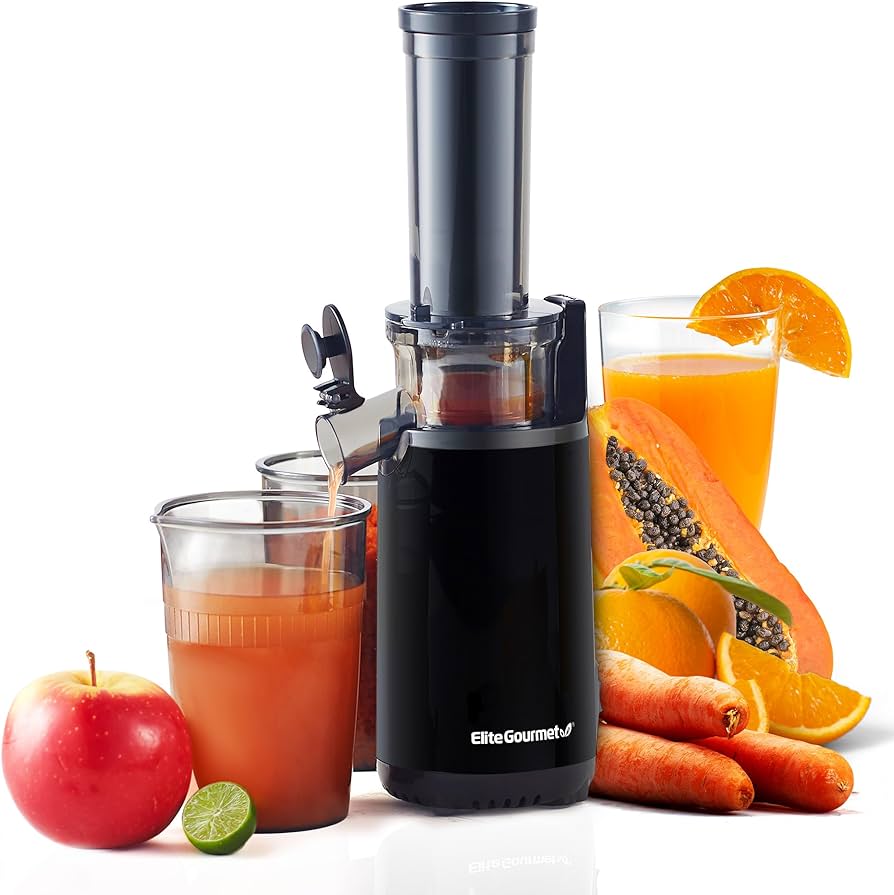
Introduction:
Carrot juice is a delicious and nutritious beverage packed with vitamins, minerals, and antioxidants. Using a juicer to make carrot juice allows you to easily extract the maximum juice while retaining all the beneficial nutrients. This comprehensive guide will walk you through the entire process of making carrot juice using a juicer, including ingredients, step-by-step instructions, variations, health benefits, and tips to enhance the flavor and experience.
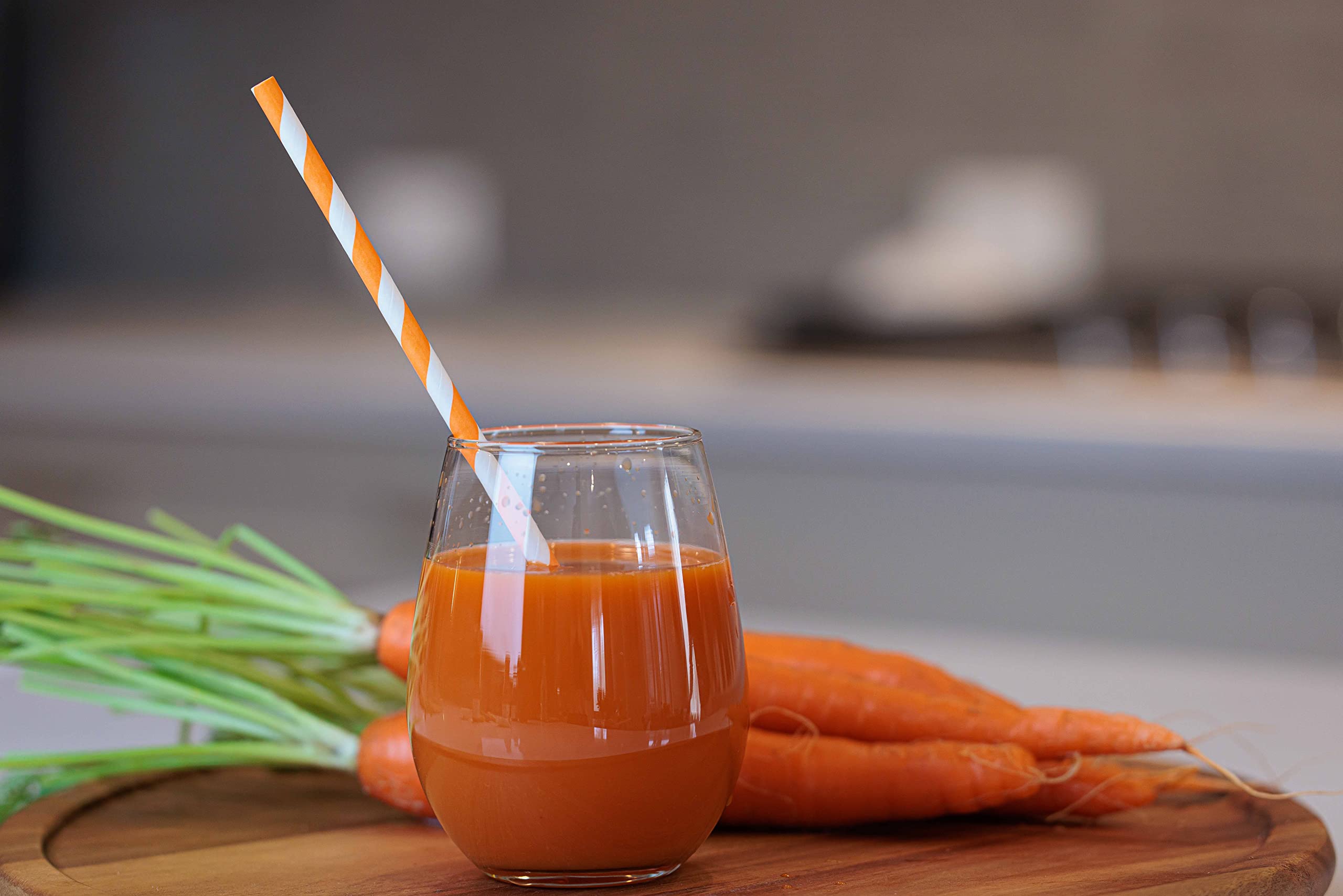
How to Make Carrot Juice with a Juicer?
The Nutritional Power of Carrot Juice
Before diving into the recipe, it’s important to understand why carrot juice is such a valuable addition to your diet.
Rich in Vitamins and Minerals: Carrots are an excellent source of vitamins A, C, and K, as well as potassium and dietary fiber. Vitamin A, in the form of beta-carotene, is essential for good vision, skin health, and immune function.
High in Antioxidants: Carrots contain various antioxidants such as beta-carotene, lutein, and zeaxanthin, which help protect your body from oxidative stress and reduce the risk of chronic diseases.
Supports Digestion: The dietary fiber in carrots aids in digestive health by promoting regular bowel movements and preventing constipation. Juicing carrots can also help detoxify the liver and improve overall digestion.
Boosts Immunity: The vitamins and antioxidants in carrot juice bolster the immune system, helping your body fight off infections and illnesses more effectively.
Promotes Skin Health: Carrot juice is known for its skin-enhancing properties. The high vitamin A content helps prevent skin issues like acne, dryness, and blemishes, giving you a healthy glow.
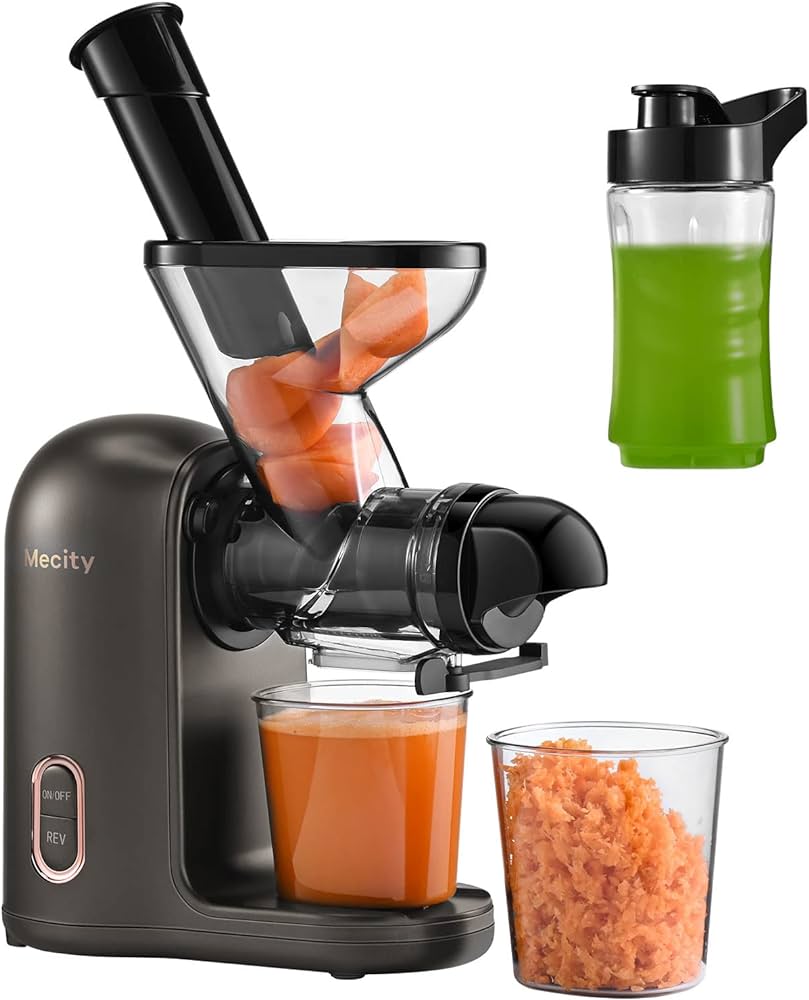
Ingredients Needed for Carrot Juice
The beauty of carrot juice is its simplicity. While the basic recipe requires just a few ingredients, you can add other fruits and vegetables to create variations that suit your taste.
Basic Ingredients:
- Fresh Carrots: Choose organic carrots whenever possible to avoid pesticide residues. Look for firm, bright orange carrots without any soft spots or blemishes.
- Water (Optional): Adding water can help dilute the juice slightly, making it lighter and easier to drink.
Additional Ingredients (Optional):
- Ginger: A small piece of ginger adds a spicy kick and additional health benefits, including anti-inflammatory properties.
- Lemon: Lemon juice adds a zesty flavor and boosts vitamin C content.
- Apples: Adding apples adds natural sweetness and extra nutrients to the carrot juice.
- Oranges: Oranges enhance the citrusy taste and provide additional vitamin C.
Step-by-Step Guide to Making Carrot Juice with a Juicer
Follow these detailed steps to make fresh and delicious carrot juice using your juicer.
Prepare the Carrots
- Wash the Carrots:
- Thoroughly wash the carrots under cold running water to remove any dirt and impurities.
- Scrub them gently with a vegetable brush to ensure they are clean, especially if you are using organic carrots with the skin on.
- Peel (Optional) and Chop:
- Peeling is optional, as the skin contains many nutrients. If you prefer a smoother juice, you can peel the carrots.
- Chop the carrots into smaller pieces that fit easily into your juicer chute.
Prepare Additional Ingredients
- Ginger:
- If using ginger, wash and peel a small piece (about 1 inch) and chop it into smaller pieces.
- Lemon:
- Peel a lemon and remove any seeds. Cut it into segments.
- Apples and Oranges:
- Wash and core the apples, cutting them into quarters.
- Peel the oranges and divide them into segments.
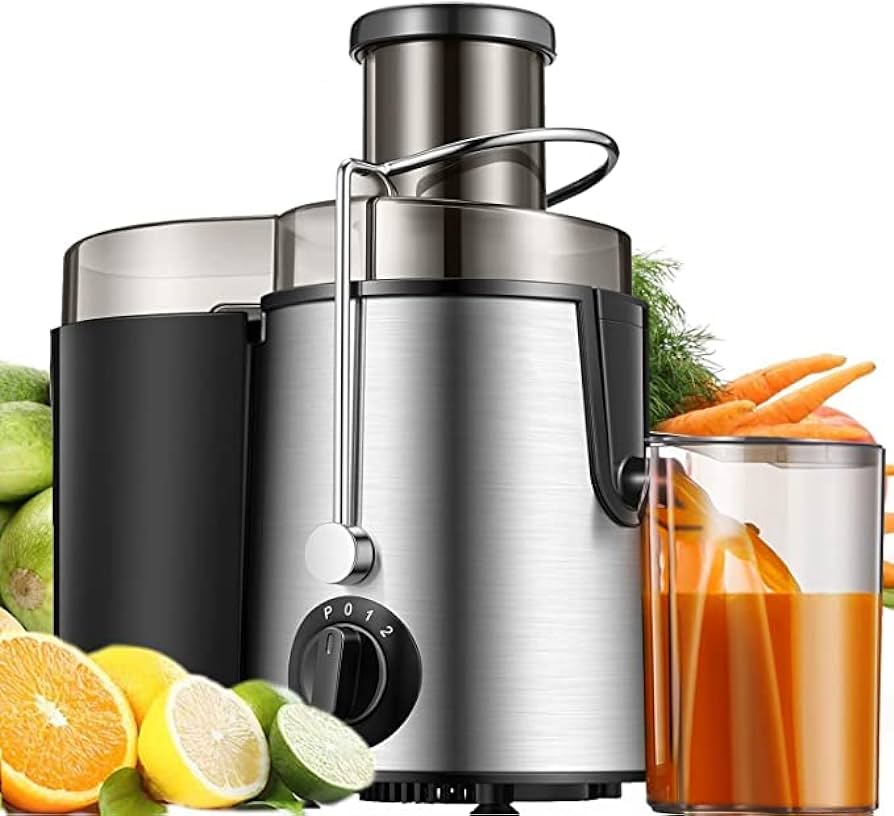
Juice the Carrots
- Set Up the Juicer:
- Assemble your juicer according to the manufacturer’s instructions, ensuring all parts are clean and in place.
- Juice the Carrots:
- Begin feeding the carrot pieces into the juicer, one at a time. Use the plunger to gently push them through if needed.
- Alternate between carrots and any additional ingredients (ginger, lemon, apples, oranges) to create a well-blended juice.
- Collect the Juice:
- Place a clean glass or jug under the juicer spout to collect the fresh carrot juice.
- Stir the juice to mix the flavors evenly.
Serve and Enjoy
- Add Water (Optional):
- If you prefer a lighter juice, add some water to the jug and stir well.
- Chill and Serve:
- For the best experience, chill the carrot juice in the refrigerator for about 30 minutes before serving.
- Pour the juice into glasses and enjoy immediately.
- Garnish (Optional):
- Garnish with a slice of lemon, a carrot stick, or a sprig of mint for an elegant touch.
Variations and Enhancements for Carrot Juice
Experimenting with different ingredients and flavors can make your carrot juice more exciting and tailored to your taste preferences.
Carrot-Ginger Juice: Combine the sweetness of carrots with the spiciness of ginger for a tangy and refreshing beverage. Simply add a small piece of ginger (about 1 inch) to the juicer along with the carrots for an invigorating twist.
Carrot-Apple Juice: Apples add natural sweetness and additional nutrients to your carrot juice. Use one large apple (any variety) for every 3-4 carrots. Core and chop the apple before juicing it with the carrots.
Carrot-Orange Juice: For a citrusy flavor, add one or two oranges to your carrot juice. Peel the oranges and segment them before juicing. This combination is especially refreshing and full of vitamin C.
Carrot-Lemon Juice: Adding lemon to your carrot juice enhances its tanginess and boosts its vitamin C content. Peel one lemon, remove the seeds, and juice it with the carrots for a zesty drink.
Carrot-Beet Juice: Combining carrots with beets creates a nutrient-dense juice with a deep, rich color. Use one small beet for every 3-4 carrots. Wash, peel, and chop the beet before juicing it with the carrots.
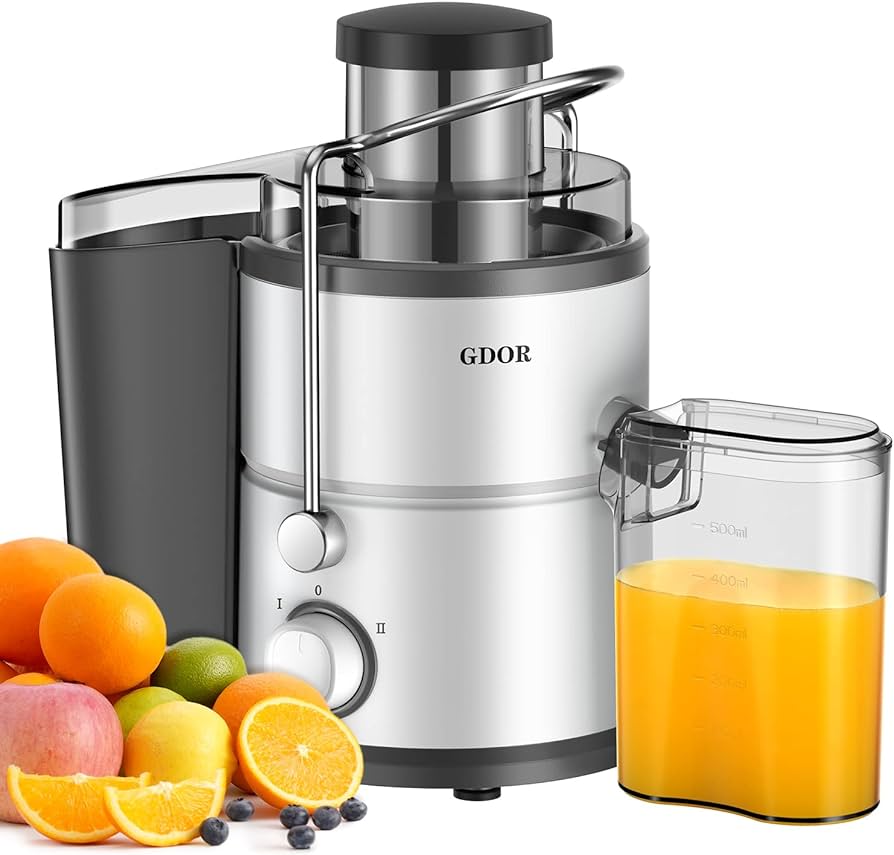
Health Benefits of Carrot Juice
Understanding the specific health benefits of carrot juice can motivate you to include it in your daily routine.
Improved Vision: Carrots are renowned for their high beta-carotene content, which is converted into vitamin A in the body. Vitamin A is crucial for maintaining healthy vision and preventing conditions like night blindness and age-related macular degeneration.
Enhanced Immunity: The combination of vitamins A and C, along with other antioxidants in carrot juice, strengthens the immune system. Regular consumption can help your body fight off infections more effectively.
Healthy Skin: Carrot juice promotes healthy skin due to its high vitamin A content. It helps prevent acne, dryness, and blemishes, giving you a radiant complexion.
Detoxification: The antioxidants and phytonutrients in carrots help detoxify the liver and flush out toxins from the body. This detoxification process supports overall health and well-being.
Cardiovascular Health: Carrot juice supports heart health by reducing cholesterol levels and improving blood pressure. The potassium in carrots helps regulate blood pressure, while the antioxidants protect against heart disease.
Enhanced Digestion: Carrot juice aids digestion by stimulating the production of digestive juices and enzymes. The dietary fiber in carrots also promotes regular bowel movements and prevents constipation.
Considerations and Tips for Making Carrot Juice
To ensure the best results and optimize your carrot juicing experience, consider the following tips and pointers.
Choosing the Right Carrots: Select fresh, firm, and brightly colored carrots for the best flavor and nutrient content. Organic carrots are preferable to minimize exposure to pesticides.
Cleaning Your Juicer: Clean your juicer thoroughly before and after each use to prevent any buildup of pulp and juice residues. This ensures that your juice remains fresh and hygienic.
Balanced Flavors: Balance the sweetness of carrots with other ingredients like ginger, lemon, or greens to create a more complex flavor profile. Experiment with different combinations to find your ideal taste.
Moderation: Although carrot juice is nutritious, consume it in moderation to avoid excessive intake of beta-carotene, which can lead to a temporary condition called carotenemia (yellowing of the skin). A glass of carrot juice a day is generally sufficient for most people.
Using Pulp: Don’t discard the leftover pulp after juicing. It can be used in various recipes like soups, stews, or baked goods to add fiber and nutrients. Alternatively, compost the pulp for an eco-friendly option.
Storing Carrot Juice: Carrot juice is best consumed fresh, but it can be stored in an airtight container in the refrigerator for up to 48 hours. Shake well before drinking, as natural separation may occur.
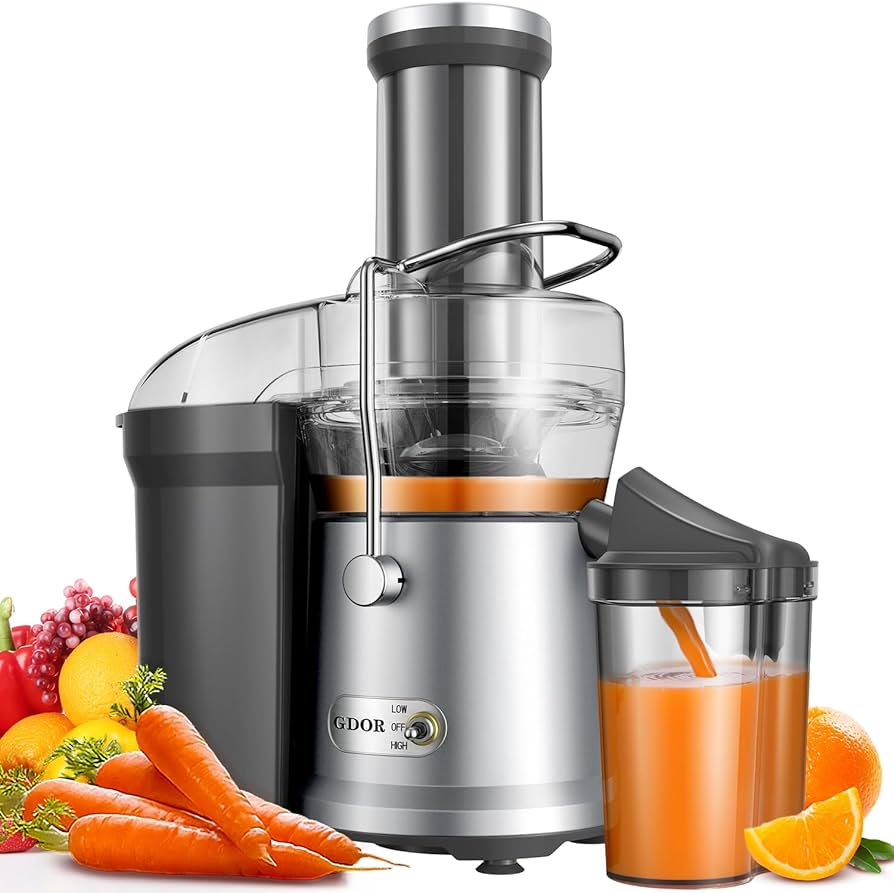
Comparing Fresh Carrot Juice to Store-Bought Juice
Understanding the differences between fresh and store-bought carrot juice can help you appreciate the benefits of making your juice at home.
Flavor: Freshly made carrot juice has a more vibrant, natural flavor compared to store-bought juice, which may taste diluted or less intense due to pasteurization and added preservatives.
Nutritional Content: Homemade carrot juice retains more vitamins, minerals, and antioxidants, as it is free from the heat processing that can degrade these nutrients in store-bought juice.
Additives and Preservatives: Store-bought carrot juice often contains additives, preservatives, and added sugars. Making juice at home ensures you get a pure, unadulterated product with no unnecessary ingredients.
Customization: Homemade carrot juice allows for customization with various fruits, vegetables, and spices. You can tailor the juice to your taste preferences and dietary needs.
Conclusion
Making carrot juice with a juicer is a straightforward process that yields a delicious and nutritious beverage. By following the detailed steps, experimenting with variations, and considering tips for enhancing flavor, you can enjoy the health benefits and refreshing taste of fresh carrot juice. This comprehensive guide ensures that you have all the information needed to make the perfect carrot juice and incorporate it into your daily health routine.

